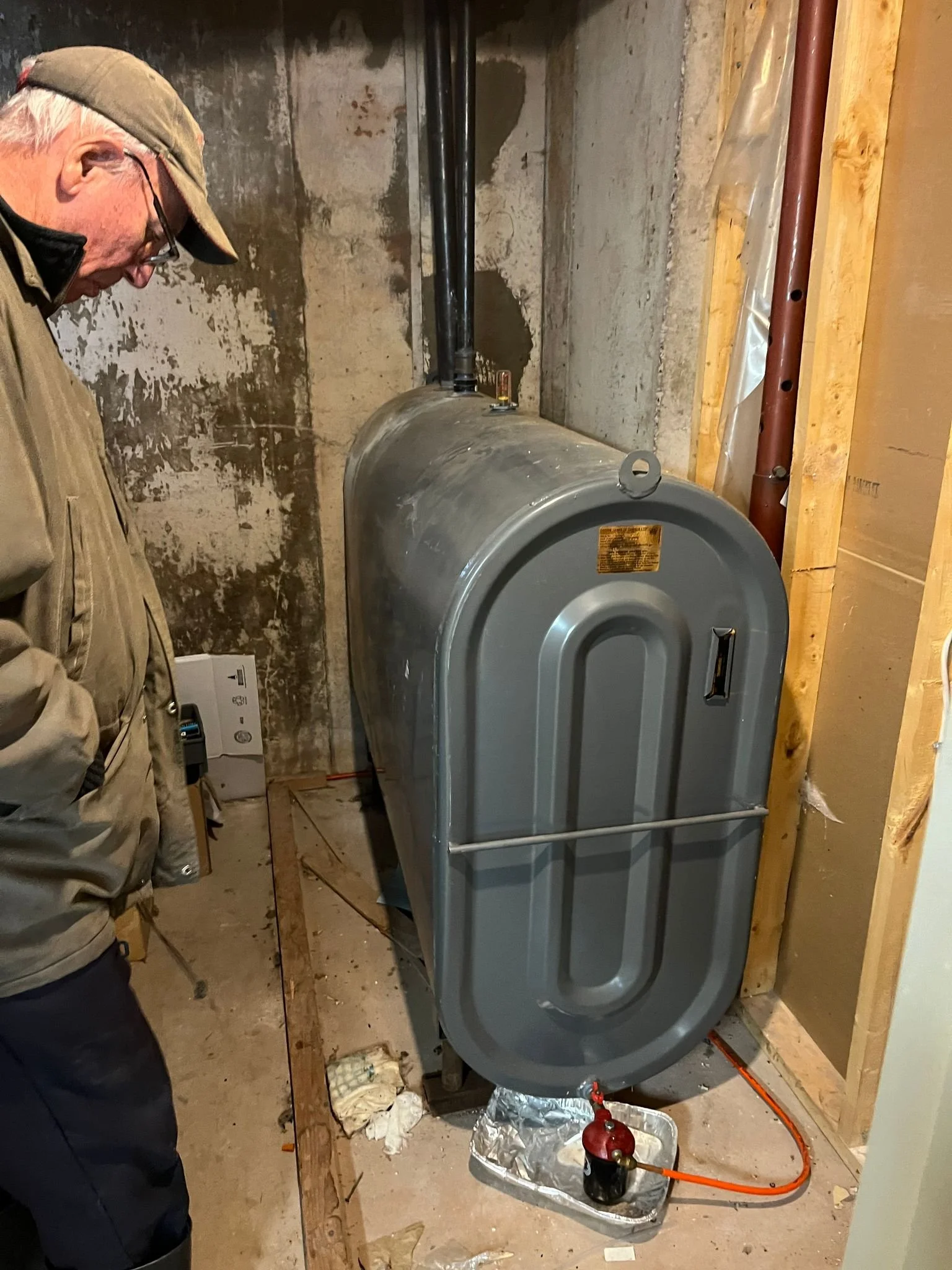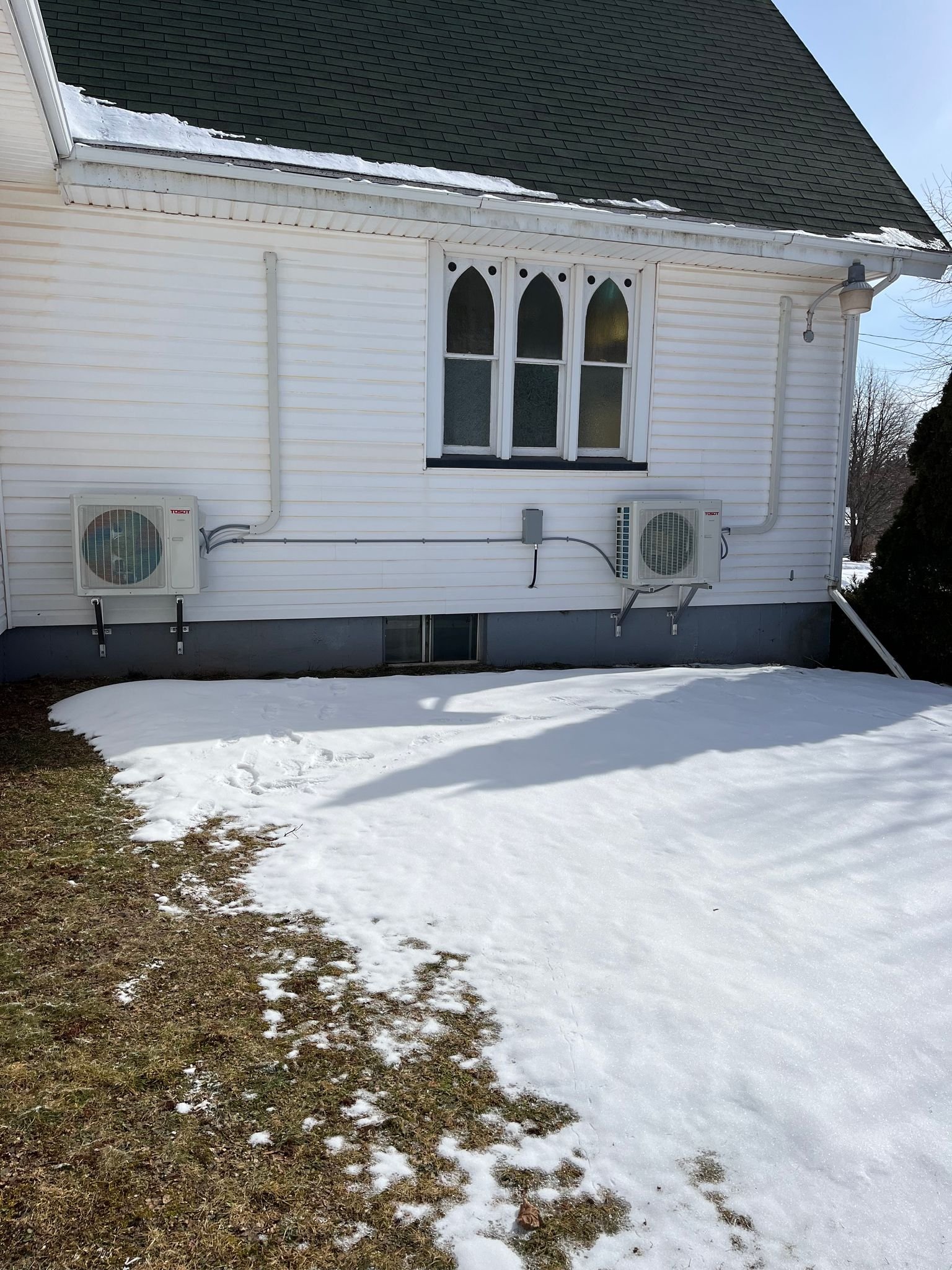“The Faithful Footprints Grant helped us accomplish our goal to get as close to zero carbon emissions as possible for a historical building such as ours.”
- St. George and St. Andrew United Church, Annapolis Royal, NS
Emissions reduction is the measurable reduction of the release of greenhouse gases (GHGs) like carbon into the atmosphere from a specified activity. Operational carbon, the amount of carbon emitted during the operating or in-use phase of a building, accounts for a large proportion of emissions released globally. Building operations include the activities necessary to operate, maintain, and manage spaces. Tackling how we run our buildings is an effective mitigation strategy for lowering emissions.
With many new buildings designed to operate from renewable energy sources, existing older buildings are where a significant shift away from carbon-based operations will need to be focused. Deep retrofits of existing buildings are critical to driving emissions down within the Canadian built environment.
The United Church of Canada acknowledges its “particular responsibility as a religious institution” to dramatically reduce its carbon footprint. The Church has said the focus of its efforts must be its buildings since heating and lighting are its largest carbon emitters. Retrofitting its historical buildings can accelerate reductions, helping to meet its national goal of reducing carbon emissions by 80% by 2030..
Reducing operational carbon, one project at a time
“As a person who has converted to solar and electric heat pumps, I was eager to help move our church to becoming carbon neutral.”
- Alexander MacKay, Chair - Trustees, Central Trinity United Church, Breadalbane, PE
The transition to a building stock with zero or near zero operational carbon is a long way off. Deep retrofits require an extensive overhaul of a building’s systems. Lack of funding, resources, capacity, and tricky timelines, are other barriers that limit the consideration of full building decarbonization retrofits. While some United Church buildings have managed to go completely net zero, like Old Barns United Church in Lower Truro, Nova Scotia, most are taking the transition one project at a time.
With support from The United Church of Canada’s energy efficiency and decarbonization grant retrofit program, Faithful Footprints, faith communities across Canada are pushing the needle to reduce their operational carbon by replacing oil and gas-fueled heating and cooling systems with electrical and renewable alternatives
Central Trinity United Church in Breadalbane, PE, replaced an oil furnace and oil tank with heat pumps. With a similar project, St. George and St. Andrew United Church in Annapolis Royal, NS, replaced several oil furnaces and an oil tank with three heat pumps and an oil-fired hot water heater with an electrical hot water heater. Shawville United Church in Shawville, QC, replaced an oil boiler with an electric boiler, while Duncan United Church in Duncan, BC, replaced its last oil furnace with an air-to-air heat exchanger.
Oil tank that was removed and newly installed heat pumps at Central Trinity United Church, Breadalbane, PE
New ductwork to support heat pumps at St. George and St. Andrew United Church in Annapolis Royal, Nova Scotia
Boiler replacement at Shawville United Church in Shawville, QC
New air to air heat exchanger at Duncan United Church in Duncan, BC
Going deeper, doing more
“STASH is a system which stores heat pump energy on milder days of the year and makes it available to support the air pump on cold days when efficiencies to get heat are less efficient. When STASH technology becomes available, we will replace the basement heating system with an air source heat pump solution.”
- Keith Black, Chair - The Sunshine Greening Committee of Trinity United Church Acton, ON
Carrying out energy conservation and renewable energy projects has empowered faith members to think more deeply about how they can reduce their carbon emissions further. Climate-conscious communities like Trinity United Church in Acton, ON, replaced two gas furnaces with an air-forced heat pump system. They plan on adding additional heat pumps to their heat pump system once new technology is available.
Old gas furnaces and new air-forced heat pump system at Trinity United Church in Acton, ON
Faithful Footprints Program
The United Church of Canada (UCCan) Faithful Footprints program offers inspiration, tools, and grants to help its faith communities reduce their carbon footprint. With the Church’s commitment to reducing its greenhouse gases (GHG) emissions by 80% by 2030, this one of a kind program offers up to $30,000 in grants towards energy conservation and renewable energy projects (conditions apply).
Faith & the Common Good is the delivery partner for UCCans Faithful Footprints program. To date, we have engaged over 300 congregations, camps, and buildings across the country. Your participation in the program puts your faith into action and helps the Church reach its target.
Aleyxa Gates Julien is the PR/Communications Coordinator for Faithful Footprints and can be reached at agatesjulien@faithcommongood.org










